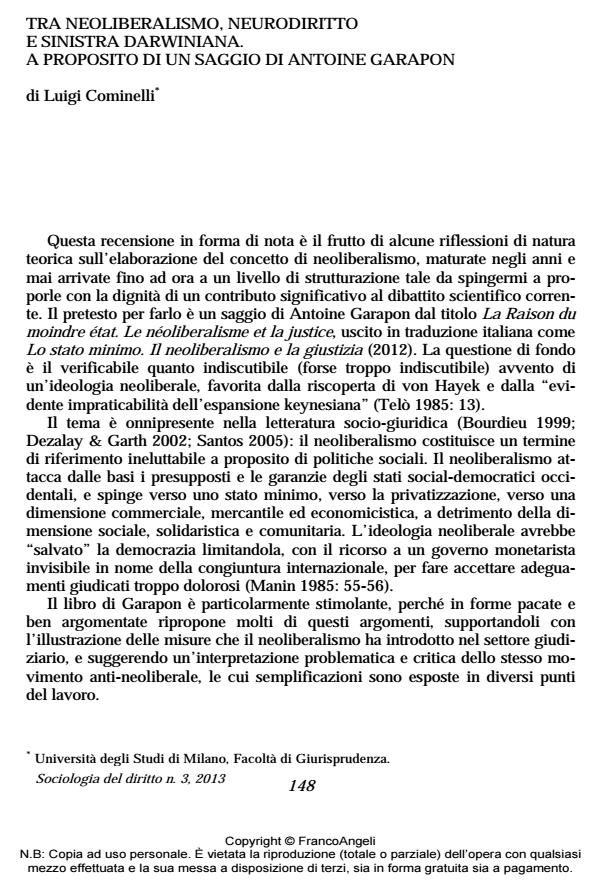Neo-liberalism, neurolaw and the Darwinian left: discussing an essay by Antoine Garapon
Journal title SOCIOLOGIA DEL DIRITTO
Author/s Luigi Cominelli
Publishing Year 2014 Issue 2013/3
Language Italian Pages 12 P. 148-159 File size 499 KB
DOI 10.3280/SD2013-003007
DOI is like a bar code for intellectual property: to have more infomation
click here
Below, you can see the article first page
If you want to buy this article in PDF format, you can do it, following the instructions to buy download credits

FrancoAngeli is member of Publishers International Linking Association, Inc (PILA), a not-for-profit association which run the CrossRef service enabling links to and from online scholarly content.
This article provides a critical analysis of a recent book by Antoine Garapon, La raison du moindre Etat. Le néolibéralisme et la justice, recently translated into Italian. The author discusses the impact of the liberal ideology upon the legal system. He stresses that neo-liberalism has brought a move towards courts taking on a managerial emphasis in search of efficiency, an accentuated drive for security, a huge tendency to turn to alternative tools of justice and a risky use of genetic inferences in crime prevention and repression. The article develops on the concept of Neo-liberalism, critically questioning the hypothesis that it is undoubtedly successful, in the light of the evolutionist debate about trends in human behaviour and of macro-economic indicators of public and social expenditure and of statistical indicators that measure inequalities in the national and international distribution of wealth.
Keywords: Garapon, Minimal State, Neo-liberalism, genetics, justice
Luigi Cominelli, Tra neoliberalismo, neurodiritto e sinistra darwiniana. A proposito di un saggio di Antoine Garapon in "SOCIOLOGIA DEL DIRITTO " 3/2013, pp 148-159, DOI: 10.3280/SD2013-003007